Why The Best Organic Coffee Is The Healthiest

Attention all coffee lovers: your daily cup (or two or three) of joe may not be as innocent as it seems. The truth about conventional coffee production is that it’s one of the most chemically intensive processes in the world, with devastating consequences for both farmers and consumers. From the environmental impact to the health risks of pesticides and herbicides, this article reveals the dangers lurking in your cup of coffee. But don’t worry – there’s a simple solution. By choosing the best organic coffee, you can make a positive impact on you, your health, the planet and communities.
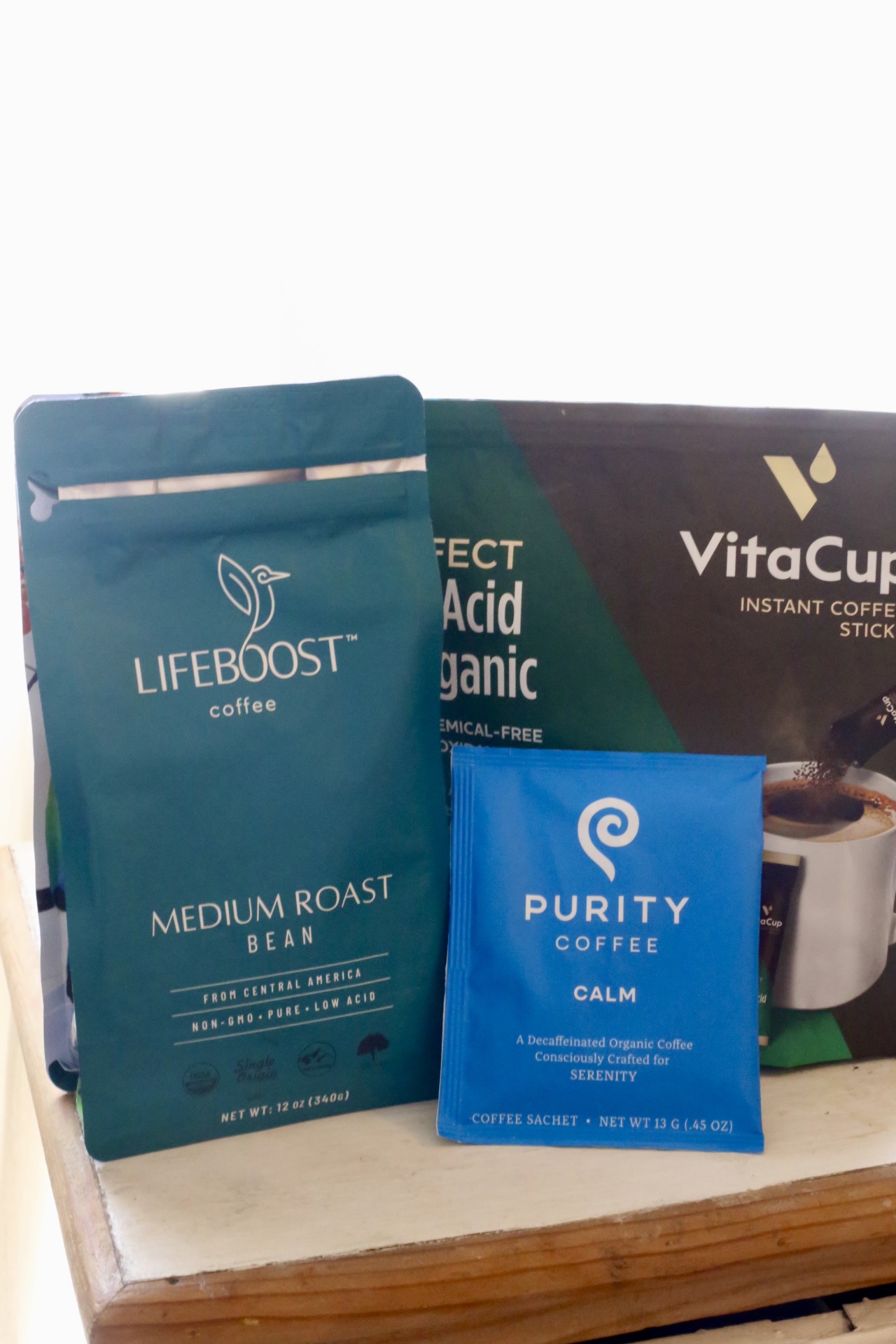
In this best of organic coffee guide we’ll cover:
- Dangers of conventional coffee
- Why organic coffee is healthiest
- How to brew the perfect cup of organic coffee
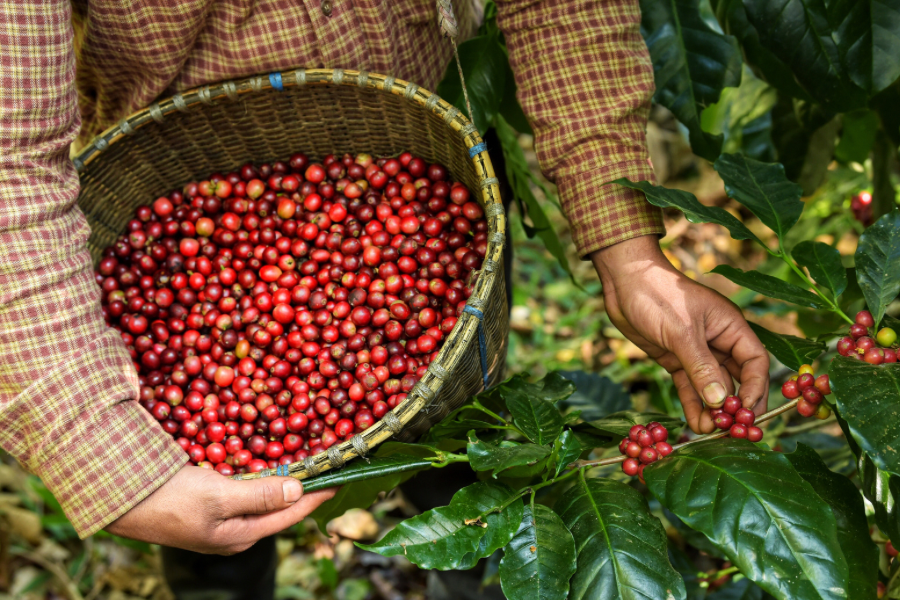
ROYALTY-FREE IMAGE FROM CANVA
The environmental impact of conventional coffee production
As we’ve just learned, conventional coffee production involves the use of a multitude of chemicals, including pesticides and herbicides. These chemicals have a profound impact on the environment, as they contaminate soil, water, and air, and contribute to the decline of biodiversity. According to a report by the International Coffee Organization, coffee production is responsible for more than 5% of global deforestation.
To make matters worse, the vast majority of coffee farms are located in developing countries, where regulations are lax or non-existent, and where farmers often don’t have the resources or knowledge to minimize the environmental impact of their operations. As a result, conventional coffee production contributes to soil degradation, water pollution, and loss of wildlife habitats.
But the environmental impact of conventional coffee production goes beyond the farms themselves. The transportation, roasting, and packaging of coffee also add to the carbon footprint of the industry. In fact, coffee is the most traded commodity in the world after oil, and its production and consumption generate significant greenhouse gas emissions.
All of this underscores the urgent need to shift towards sustainable and organic coffee production methods. By choosing organic coffee, consumers can support farms that use eco-friendly practices, such as composting, shade-grown crops, and natural pest control. Organic coffee production is not only better for the environment, but it also promotes social justice and fair trade practices, which benefit both farmers and consumers.
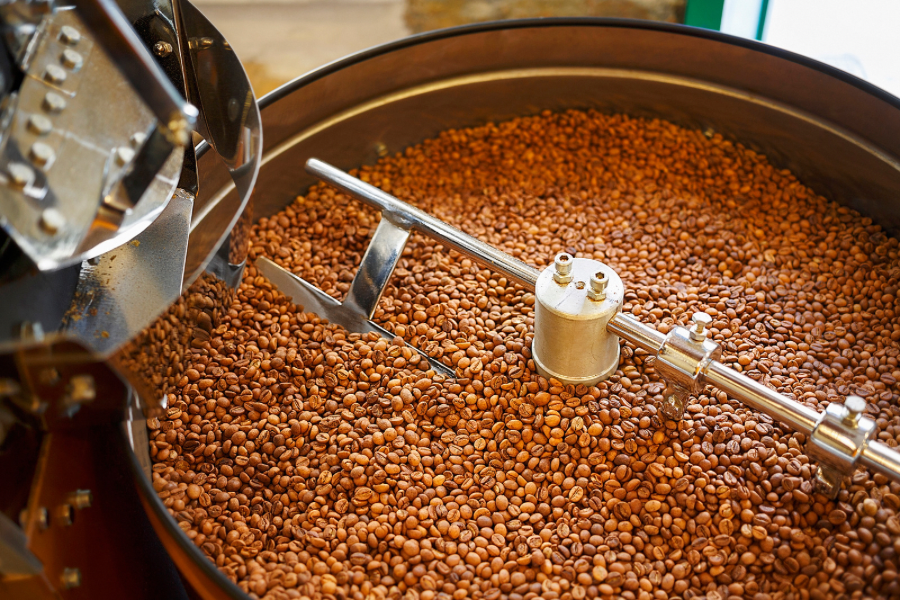
ROYALTY-FREE IMAGE FROM CANVA
The health risks of pesticides and herbicides in coffee crops
Pesticides and herbicides are commonly used in conventional coffee farming to keep crops free from pests and weeds. However, these chemicals come with significant health risks for both coffee farmers and consumers. Exposure to pesticides can lead to long-term health issues such as respiratory problems, skin irritation, and neurological disorders. Additionally, studies have shown that these chemicals can contaminate soil, water, and wildlife in surrounding areas, affecting the health of entire communities.
Organic coffee production methods, on the other hand, rely on natural methods of pest control that do not use harmful chemicals. By choosing organic coffee, consumers can support sustainable and healthy farming practices while also reducing their own exposure to harmful chemicals. This is not only better for the environment and human health, but it also promotes social justice and fair trade practices, which benefit both farmers and consumers.
The health risks associated with conventional coffee production underline the importance of shifting towards sustainable and organic farming practices. However, it is not just the health of consumers that is at stake. Coffee farmers and their families also bear the brunt of the harmful effects of pesticides and herbicides.
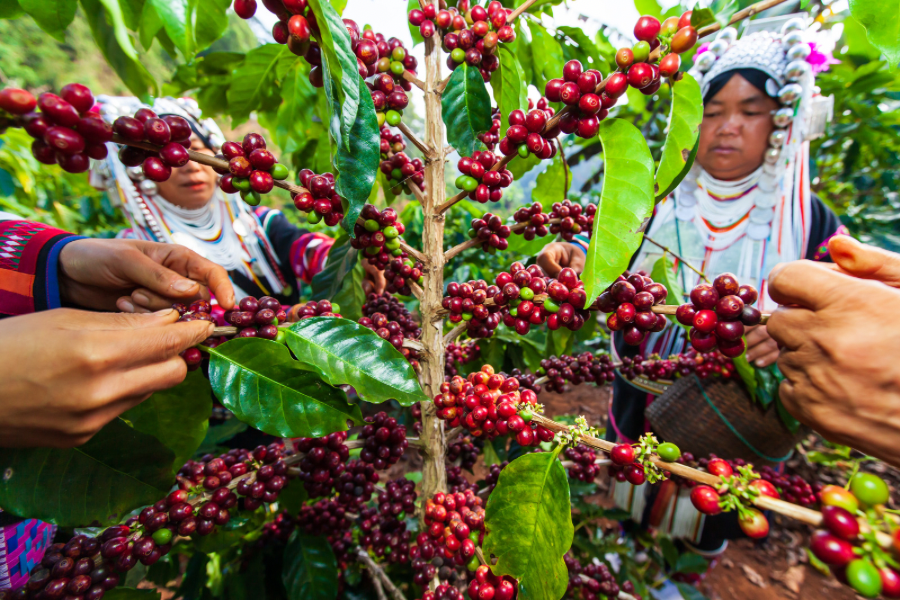
ROYALTY-FREE IMAGE FROM CANVA
The toll on coffee farmers and their families
The use of pesticides and herbicides in conventional coffee production not only puts consumers at risk but also takes a heavy toll on coffee farmers and their families. Many of these farmers work and live in close proximity to the sprayed fields, leading to serious health consequences. Studies have shown a link between pesticide exposure and an increased risk of cancer, birth defects, and neurological disorders. Moreover, the use of these chemicals can contaminate soil and water, harming both the environment and the livelihoods of farmers.
The impact on coffee-growing communities is especially concerning as many of these areas are already economically disadvantaged. The cost of medical care and lost productivity due to illness can push farmers and their families deeper into poverty. Furthermore, the use of dangerous chemicals in conventional coffee production perpetuates a system of inequality where farmers are paid low prices for their harvest and are forced to bear the burden of environmental and health risks.
Choosing organic coffee is a simple yet powerful way to make a positive impact. By supporting sustainable and healthy farming practices, consumers can help reduce the use of harmful chemicals and promote social justice and fair trade practices. This, in turn, benefits both farmers and consumers alike. Organic coffee production methods rely on natural methods of pest control that do not use harmful chemicals, ensuring that the health of farmers, their families, and the environment is protected.
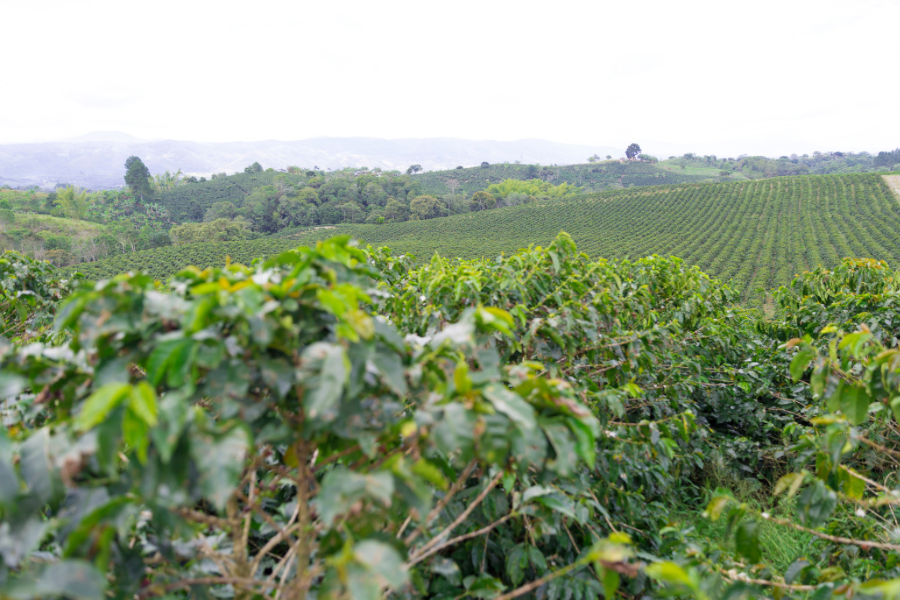
ROYALTY-FREE IMAGE FROM CANVA
Why choose organic coffee from an environmental perspective
Choosing organic coffee over conventionally produced coffee can make a significant impact on coffee-growing communities. As mentioned earlier, conventional coffee production involves the use of harmful chemicals that can cause illness to farmers and perpetuate social and economic inequality. By choosing organic coffee, consumers are supporting sustainable and healthy farming practices that prioritize the well-being of farmers, their families, and the environment.
Organic coffee production methods rely on natural methods of pest control that do not use harmful chemicals. This ensures that the health of farmers and their families is not compromised by exposure to toxic substances. Additionally, organic coffee farming promotes biodiversity and soil health by utilizing practices such as crop rotation and composting.
By supporting organic coffee production, consumers are also supporting fair trade practices and social justice. Organic coffee is often produced by small-scale farmers who are paid a fair price for their harvest, allowing them to support their families and communities. This helps to reduce poverty in coffee-growing regions and promote sustainable economic development.
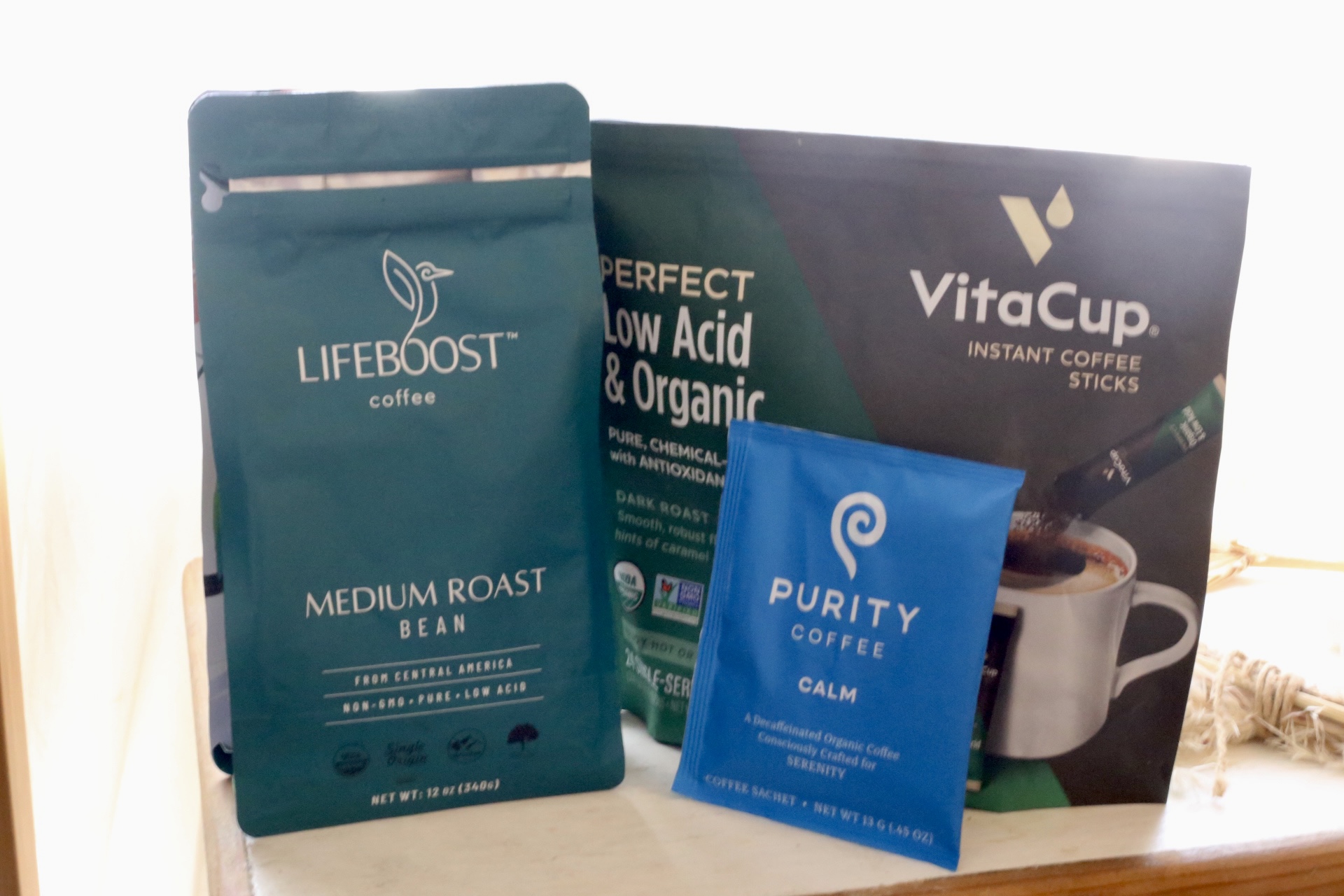
Why choose Organic Coffee for its health benefits
Most of us coffee drinkers start each day with a cup of coffee. In fact, over 60% of Americans enjoy a cup of coffee every day and we’re here to help you consider switching to organic coffee.

Not only does it have a richer flavor, but it also comes with surprising health benefits. From improved brain function to reduced risk of chronic diseases, and even enhanced athletic performance, incorporating organic coffee into your daily routine could be a game-changer. Read on to discover all the ways organic coffee can boost your health.
Improved Brain Function
In addition to its ability to reduce the risk of chronic diseases, drinking organic coffee can also lead to improved brain function. The caffeine in coffee is a natural stimulant that affects the central nervous system, leading to increased alertness and concentration. In fact, studies have shown that regular coffee consumption can improve memory, reaction time, and overall cognitive function. Organic coffee, in particular, has been found to contain higher levels of antioxidants and beneficial compounds that may further enhance brain health. So next time you need a mental boost, consider reaching for a cup of organic coffee to improve your brain function and productivity.
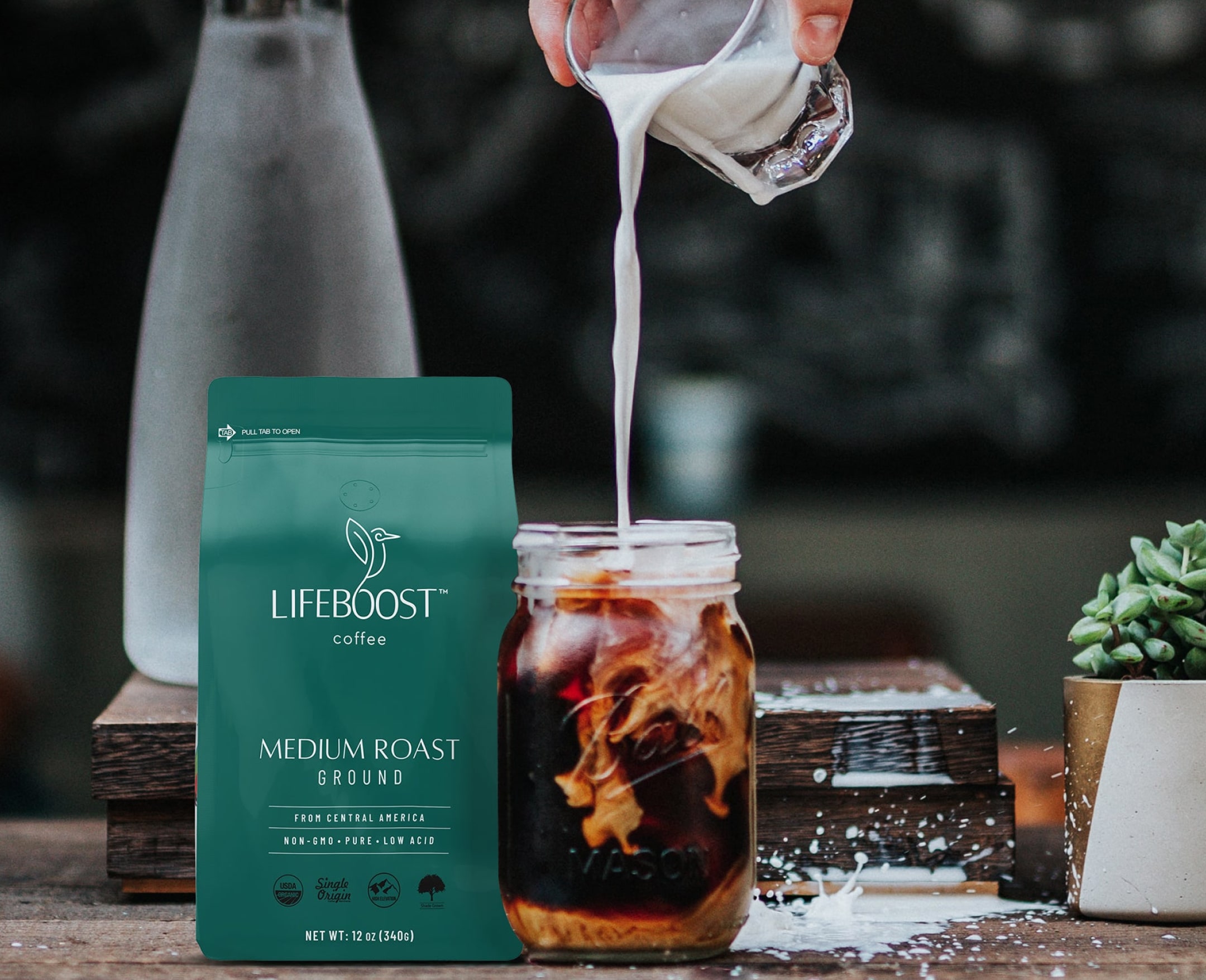
Reduced Risk of Chronic Diseases
Drinking organic coffee not only provides you with a morning boost, but it can also help reduce the risk of chronic diseases. Research has shown that coffee consumption has been linked to a lower risk of type 2 diabetes, liver disease, and certain types of cancer. When choosing organic coffee, you can be sure that you are avoiding harmful chemicals and pesticides that may be present in regular coffee beans. Additionally, organic coffee has higher levels of antioxidants and beneficial compounds that can further reduce the risk of chronic diseases. By incorporating organic coffee into your daily routine, you can not only satisfy your coffee cravings but also improve your overall health.
Moreover, organic coffee is an excellent source of antioxidants that can help prevent damage to cells in the body caused by free radicals. Antioxidants are vital for our health, as they can help protect us from chronic diseases such as heart disease, cancer, and Alzheimer’s. Studies have shown that organic coffee contains higher levels of antioxidants than regular coffee, making it an even better choice for your health.
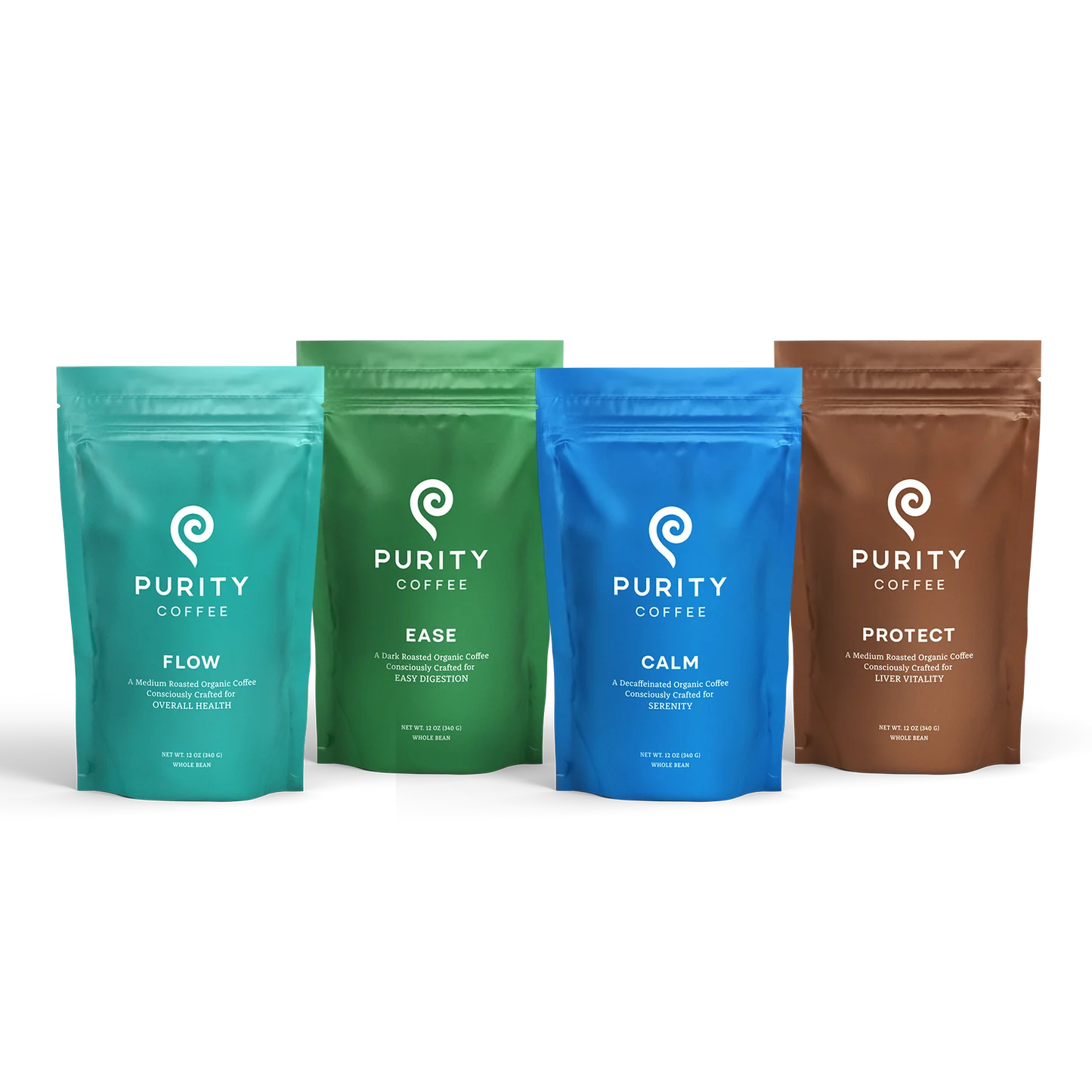
Increased Antioxidant Intake
Moreover, organic coffee is an excellent source of antioxidants that can help prevent damage to cells in the body caused by free radicals. Antioxidants are vital for our health, as they can help protect us from chronic diseases such as heart disease, cancer, and Alzheimer’s. Studies have shown that organic coffee contains higher levels of antioxidants than regular coffee, making it an even better choice for your health. By increasing your antioxidant intake through organic coffee consumption, you can reduce the risk of chronic diseases and promote overall wellness.
Boosted Metabolism
In addition to the benefits organic coffee provides by increasing antioxidant intake, it also has the potential to boost metabolism. Research has shown that coffee in general contains caffeine, which is a natural stimulant that can speed up metabolism. This increase in metabolism can lead to higher energy levels and weight loss. While regular coffee can provide some metabolism-boosting benefits, organic coffee takes it to the next level due to its higher levels of antioxidants.
But how does this translate to weight loss? When our metabolism is boosted, our body burns calories at a faster rate. This means that even while at rest, our body is burning more calories than it would be without the caffeine boost from coffee. Additionally, the caffeine in organic coffee can act as an appetite suppressant, leading to reduced calorie intake throughout the day.
While weight loss may be a desirable outcome for many, a boosted metabolism can also enhance athletic performance.
Enhanced Athletic Performance
When it comes to athletic performance, every advantage counts. From training routines to diet and supplementation, athletes are always on the lookout for ways to gain an edge. One such way may be through the consumption of organic coffee.
Organic coffee contains natural caffeine, which has been shown to improve athletic performance in several ways. For one, caffeine has been found to increase metabolic rate, leading to a higher calorie burn and potentially aiding in weight loss. A boosted metabolism can also lead to higher energy levels, allowing athletes to push themselves further during workouts and achieve their goals faster.
Caffeine has also been shown to enhance endurance performance, allowing athletes to go for longer periods of time without experiencing fatigue. This effect may be due to caffeine’s ability to reduce perceived exertion, or the feeling of how hard the body is working during exercise.
Of course, it’s important to note that every individual responds differently to caffeine and its effects on athletic performance. Some athletes may find that caffeine gives them a much-needed boost, while others may not notice any significant difference. As with any dietary change, it’s important to consult with a healthcare professional before making any adjustments to your routine.
Incorporating organic coffee into your daily routine can offer a multitude of health benefits that we may not have previously considered. From improved brain function to reduced risk of chronic diseases, increased antioxidant intake, boosted metabolism, and enhanced athletic performance, there are many reasons to make the switch to organic coffee.
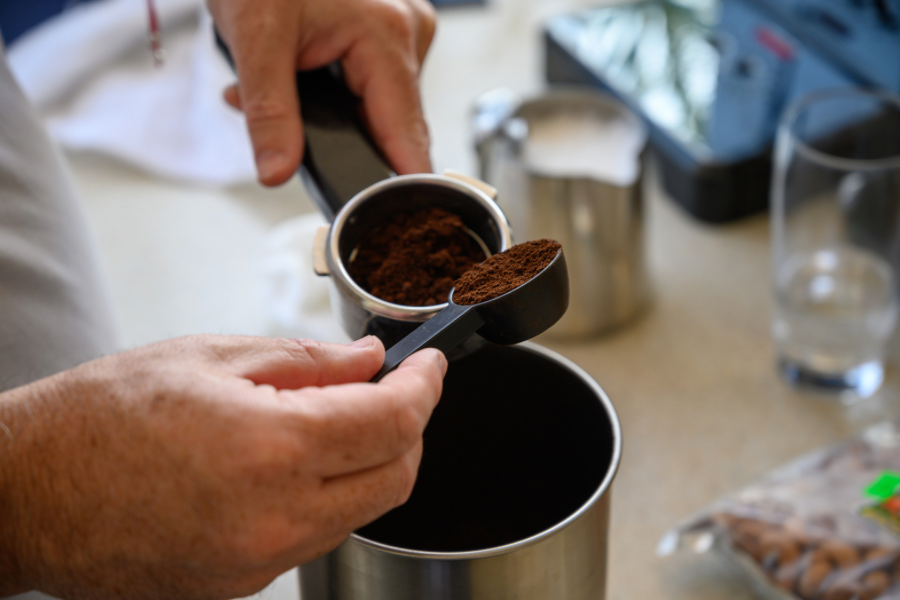
ROYALTY-FREE IMAGE FROM CANVA
How to brew the perfect cup of organic coffee
There’s nothing quite like the aroma of freshly brewed coffee to start your day on the right foot. But brewing the perfect cup is not just about throwing some beans and water in a pot and hoping for the best. It’s a careful and deliberate process that involves choosing the right beans, grinding them to perfection, and mastering the art of brewing. If you’re a fan of organic coffee, you’re in luck because we’re about to give you the lowdown on how to brew the perfect cup at home. From selecting the best beans to experimenting with different brewing methods, we’ll guide you through the process step by step. So grab your favorite mug, and let’s dive into the world of organic coffee brewing.

ROYALTY-FREE IMAGE FROM CANVA
Choose the right organic coffee beans
To brew an excellent cup of organic coffee, you need to start with the right beans. It’s important to choose beans that are freshly roasted and organic. Organic coffee is grown without the use of harmful chemicals, making it better for the environment and your health.
When purchasing beans, be sure to check the roast date on the packaging and opt for beans that were roasted within the last two weeks. This is because freshly roasted coffee beans will have a richer and more vibrant flavor compared to beans that have been sitting on the shelf for a while.
Another crucial factor to consider when choosing coffee beans is the origin. Different regions produce coffee beans with unique flavors and aromas, so it’s worth experimenting with different origins to find your favorite.
Some popular organic coffee bean origins include Latin America, Africa, and Indonesia. Latin American beans tend to have a mild, smooth flavor, while African beans are known for their bright acidity and fruity notes. Indonesian beans are generally more earthy and spicy.
By selecting the right organic coffee beans, you’ll ensure that your cup of coffee is packed with flavor and aroma. Now that you’ve got your beans sorted, let’s move onto the next step: grinding them correctly.

ROYALTY-FREE IMAGE FROM CANVA
Grind the beans correctly
To make the most flavorful cup of coffee, you need to grind the beans correctly. A good grinder is essential – it will give you even-sized coffee grounds, which means a more consistent extraction and therefore better flavor. If you can, invest in a burr grinder; these grinders crush coffee beans between two burrs – one stationary and one rotating – resulting in a more uniform grind.
Different brewing methods require different grind sizes, so consider how you’re going to make your coffee before you get started. For example, French press coffee requires a coarser grind, while espresso calls for a much finer grind.
Once you’ve got your grinder and know what grind size to aim for, adjust the grinder accordingly. Most grinders have adjustable settings, so experiment until you find the right one for your brewing method.
Now that you’ve got your beans ground, it’s time to measure the coffee and water. This step is just as important as choosing the right beans and grinding them correctly. So, let’s move on to the next step and make the perfect cup of organic coffee.

ROYALTY-FREE IMAGE FROM CANVA
Measure the coffee and water
Now that you’ve perfectly ground your coffee beans, it’s time to move on to the next step in making a perfect cup of organic coffee: measuring the coffee and water.
The general rule of thumb is to use approximately two tablespoons of coffee for every six ounces of water. However, some coffee enthusiasts prefer a stronger cup and may add an extra scoop or two. It’s important to measure your coffee with a scale or measuring spoon to ensure consistency and accuracy.
When it comes to water, using filtered water is always recommended for the best taste. Make sure to heat the water to the appropriate temperature for your brewing method. For example, the ideal temperature for pour-over coffee is between 195 and 205 degrees Fahrenheit.
Once you’ve measured out your coffee and water, you’re ready to start brewing your perfect cup of organic coffee. Don’t forget to use a timer to ensure you’re brewing for the correct amount of time, and be sure to enjoy every sip of the delicious coffee you’ve brewed.

ROYALTY-FREE IMAGE FROM CANVA
Brew your organic coffee
Brew your organic coffee by starting with good quality filtered water. The cleaner the water, the better the taste. Next, heat the water to the optimal temperature for your brewing method. For instance, for pour-over coffee, heat the water to between 195 and 205 degrees Fahrenheit.
Once you have the water ready, it’s time to start brewing. Make sure to measure out the appropriate amount of coffee grounds and water, so you can brew your perfect cup of organic coffee. Don’t forget to use a timer to ensure you’re brewing for the correct amount of time.
After you’ve brewed your coffee, sit back, relax and savor the taste of your delicious creation. Remember, brewing coffee is an art, and with practice, you’ll be able to create the perfect cup of organic coffee every time.
Experiment with brewing methods to find your favorite way to brew coffee. Keep in mind that the same coffee beans can taste different depending on how they are brewed. Don’t be afraid to try new techniques and brewing equipment until you find your perfect cup.,
Experiment with brewing methods
One of the joys of making coffee is the versatility it offers. You can personalize your brew by adjusting the coffee-to-water ratio, water temperature, and brewing time to create an exceptional cup of coffee. Experiment with different brewing methods, such as French press, pour-over, drip machine, or espresso, to find the one that yields the best flavor for you. Keep in mind that each brewing method requires specific equipment and techniques, and the same coffee beans can taste different based on the method used.
French press brewing method involves steeping coffee grounds in hot water and pressing them down with a plunger. This method yields a bold and rich flavor that is perfect for dark roast coffee beans.
On the other hand, pour-over brewing method involves slowly pouring hot water over coffee grounds in a filter-lined dripper. This method yields a clean and bright flavor that is ideal for medium roast coffee beans.
Drip machine brewing method is the most common method used in households. It involves pouring water into a reservoir, and the machine drips hot water over the coffee grounds in a filter. This method yields a consistent and easy-to-make coffee that is perfect for beginners.
Finally, espresso brewing method involves brewing coffee under high pressure, resulting in a strong and intense flavor. This method requires a sophisticated machine and precise techniques, making it perfect for coffee aficionados.
Experiment with different brewing methods to find your perfect cup of organic coffee. Remember, brewing coffee is an art, and with practice, you can create the perfect cup of coffee every time.,
In the end, brewing the perfect cup of organic coffee is a balancing act between science and art. It requires a deep understanding of the beans, roasts, and brew methods. By choosing the right coffee beans, grinding them correctly, measuring the coffee and water, and experimenting with brewing methods, you can enjoy a rich and flavorful cup of organic coffee every time.


